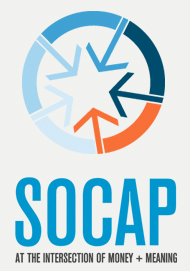This afternoon’s “Wildcard” session discussed the issue of how to “crack” the corporate “nut,” and addressed common challenges that face social enterprises, impact investors, and development organizations in collaborating with global corporations. Patricia Chin-Sweeney, one of the Directors of I-DEV International, asked those present to consider how we are engaging or looking to engage corporations, and what strategies allow effective navigation of corporate hierarchy.
Food for thought from this session:
1. Among your outreach issue areas, know which are considered “public goods:”
- In looking at the challenges we face implementing outreach to the developing world, it is imperative to recognize that corporate involvement cannot solve everything. Many issues require multi-lateral work and input from corporations, government, and non-profit organizations.
- Ling-Ling Phung, Unilever, addressed the need to involve policy makers in the discussion. In engaging with public goods, larger-scale structural shifts are critical; all the corporate money in the world may not have the capacity to solve the issue.
2. Align with corporate partners that share your organization’s value system:
- To make long-term, successful corporate connections requires a critical assessment of your own organization’s value system, and reaching out to align with corporations that share those same values.
- Scott Coleman, Google, stressed that developing true awareness of a corporation’s outreach or CSR objectives requires taking the time to collaborate and engage in a real dialogue. The best approach is not necessarily reaching out with a problem that needs a solution, or even proposing a solution that needs corporate support. Each issue requires an appropriately nuanced engagement strategy.
3. There are no industry-specific outreach strategies:
- Daniel Jacobs, Saatchi & Saatchi S, clarified that while certain trends may appear among the types of CSR outreach by corporations within the same industries, strategies for outreach cannot be called industry specific but must instead always a company specific endeavor. Each corporation’s values are inherently unique due to scaling, management, and strategy differences, and thus each company’s decision to support requires an individual approach.
- Approach corporate connection with a business case for your contact; explain the value you would provide as a medium for their connection, and how your work can complement theirs as well.
